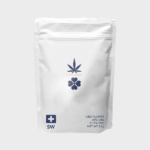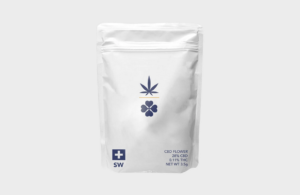Have you tried CBD before? As more companies enter the market to take benefit of this need, there is a growing number of items from which you can choose.
What do you understand about CBD and how it affects your body? What should you know before you explore CBD products? Take a look at the scientific research behind CBD, how it interacts with the systems in your body, and how it may influence you.
The Difference Between CBD and THC
Many states have legislated marijuana not just for clinical use but for recreational use. The result is that millions of individuals who wouldn’t have utilised marijuana before are now enjoying it lawfully, and this cultural shift has helped increase interest in the usage of CBD, or cannabidiol.
After THC, CBD is one of the most common materials in marijuana. CBD can be originated from cannabis or hemp; the CBD originated from hemp tends to have less THC than CBD that is derived from cannabis.
Recognizing the chemical structure of CBD helped scientists take the following step of identifying the chemical structure of THC. They found that the “high” that cannabis generates is from THC, not CBD. THC works in the brain by activating the neurotransmitter dopamine, which is connected with feelings of satisfaction. It is legal in some states and may only be used for clinical functions because THC creates a high.
How CBD Works in the Body?
As we said before, CBD is legal in many states and countries because it doesn’t create a high. It’s also been revealed to have positive effects on conditions consisting of asthma, epilepsy and other seizure conditions, nausea, multiple sclerosis, and some lung problems, and appears to help treat neurodegenerative problems such as Alzheimer’s disease and Parkinson’s illness.
Your body generates compounds called endocannabinoids that play a role in regulating various functions. CB1 endocannabinoid receptors are found in the main nervous system and CB2 endocannabinoid receptors are found in the peripheral nervous system. CBD’s molecular structure allows it to bind to either type of receptor. When it binds to a receptor, neurotransmitters are launched. Neurotransmitters are the chemical carriers that attach afferent neurons to various other parts of the body, such as the mind, body organs, and muscle mass. The area of the CBD receptor determines what effects it will have.
Using CBD: Factors to Consider
You need to talk to your doctor about helping it to your therapy routine if you have a medical condition that CBD might help with. You’ll find a large selection of CBD items. If you prefer edibles, you can choose gummies, chocolates, and various other foods and beverages that contain cbd. CBD-containing lotions and creams can be massaged into your skin and offer different fragrances and strengths. You can also select tinctures and oils.










More Stories
Exploring the Mechanics of Disposable Vapes: How They Work and Why They’re Popular
Benefits of Buying CBD Online: Convenience, Variety, and Quality
Examining Weed Wonderland’s Convenience in Weed Delivery